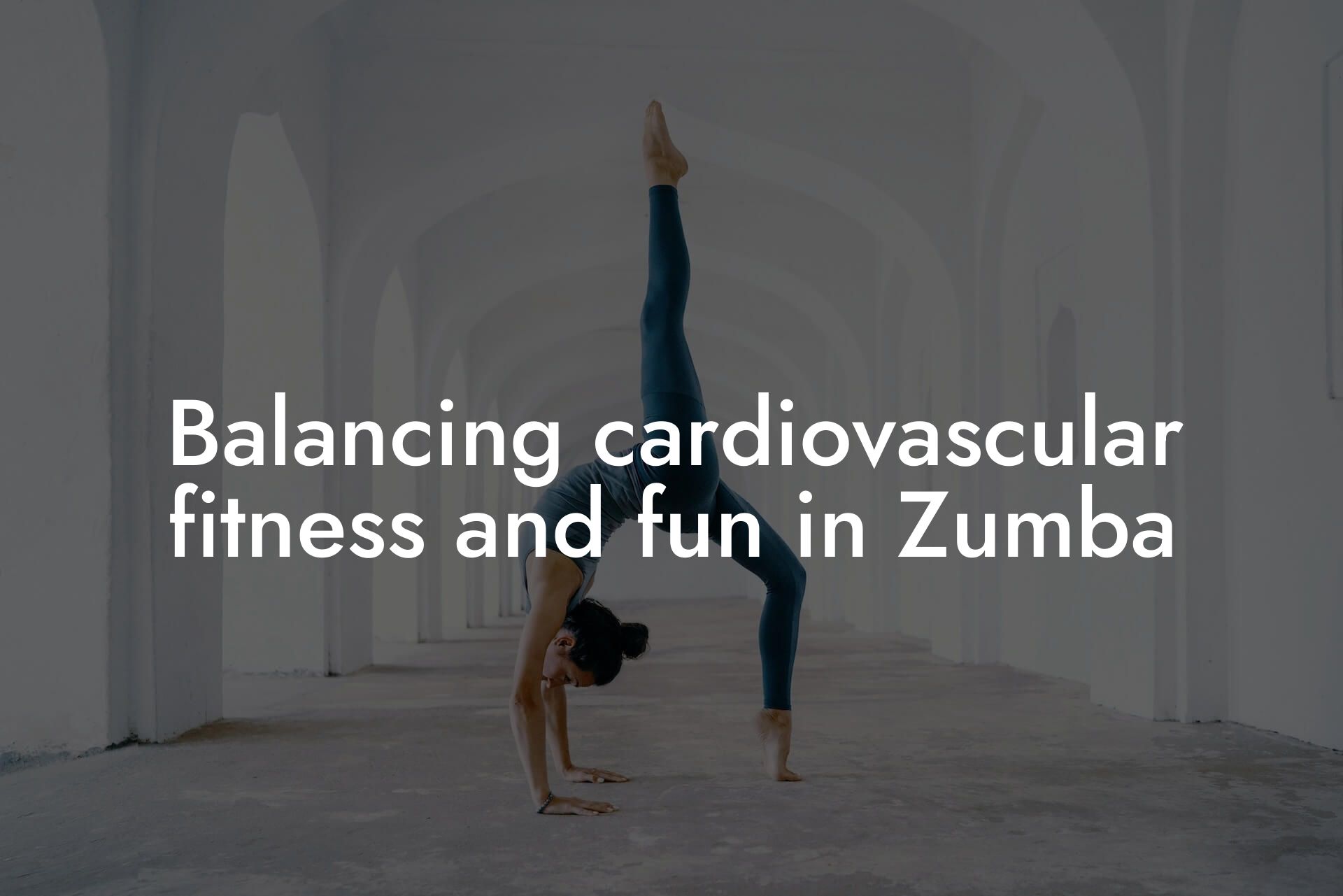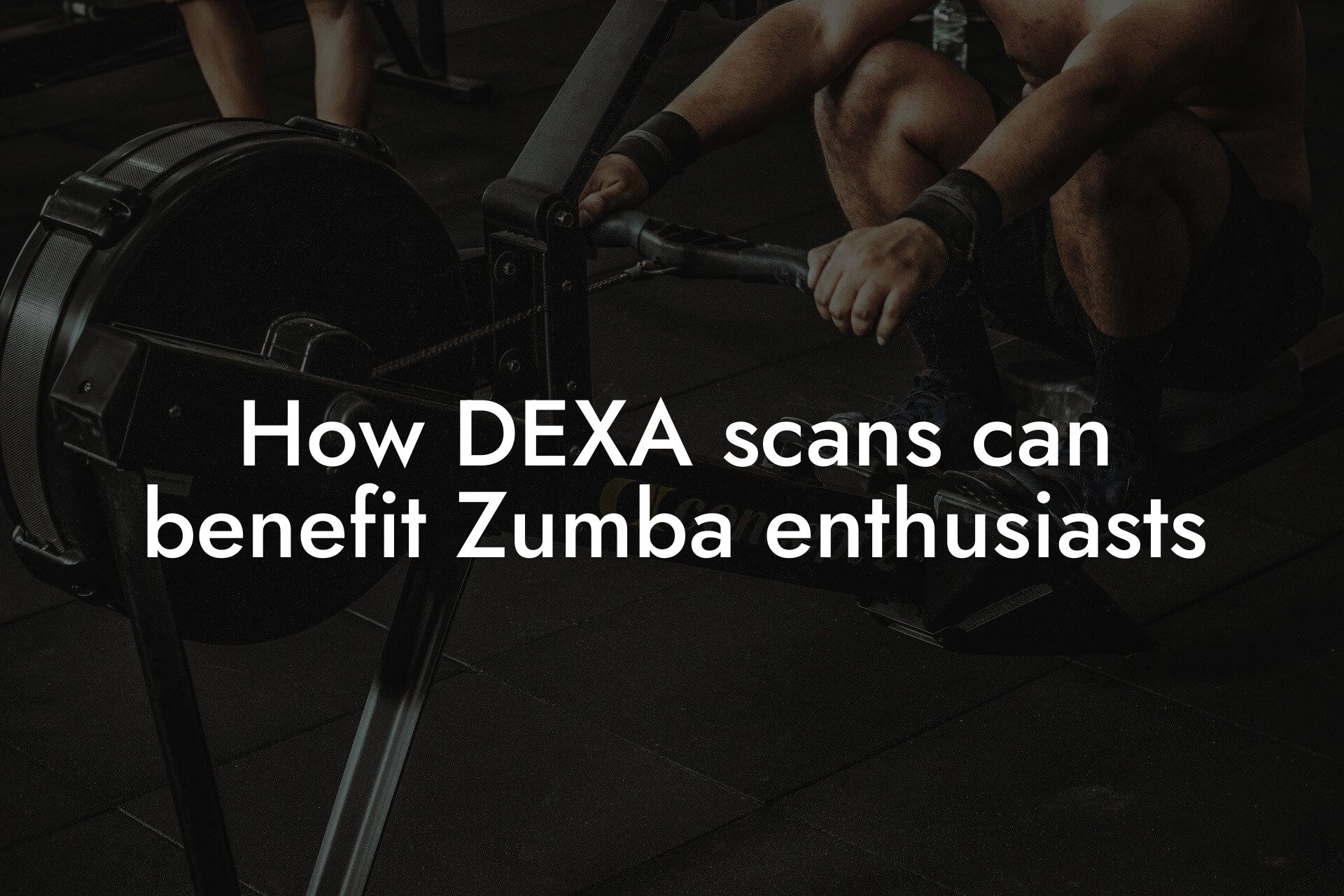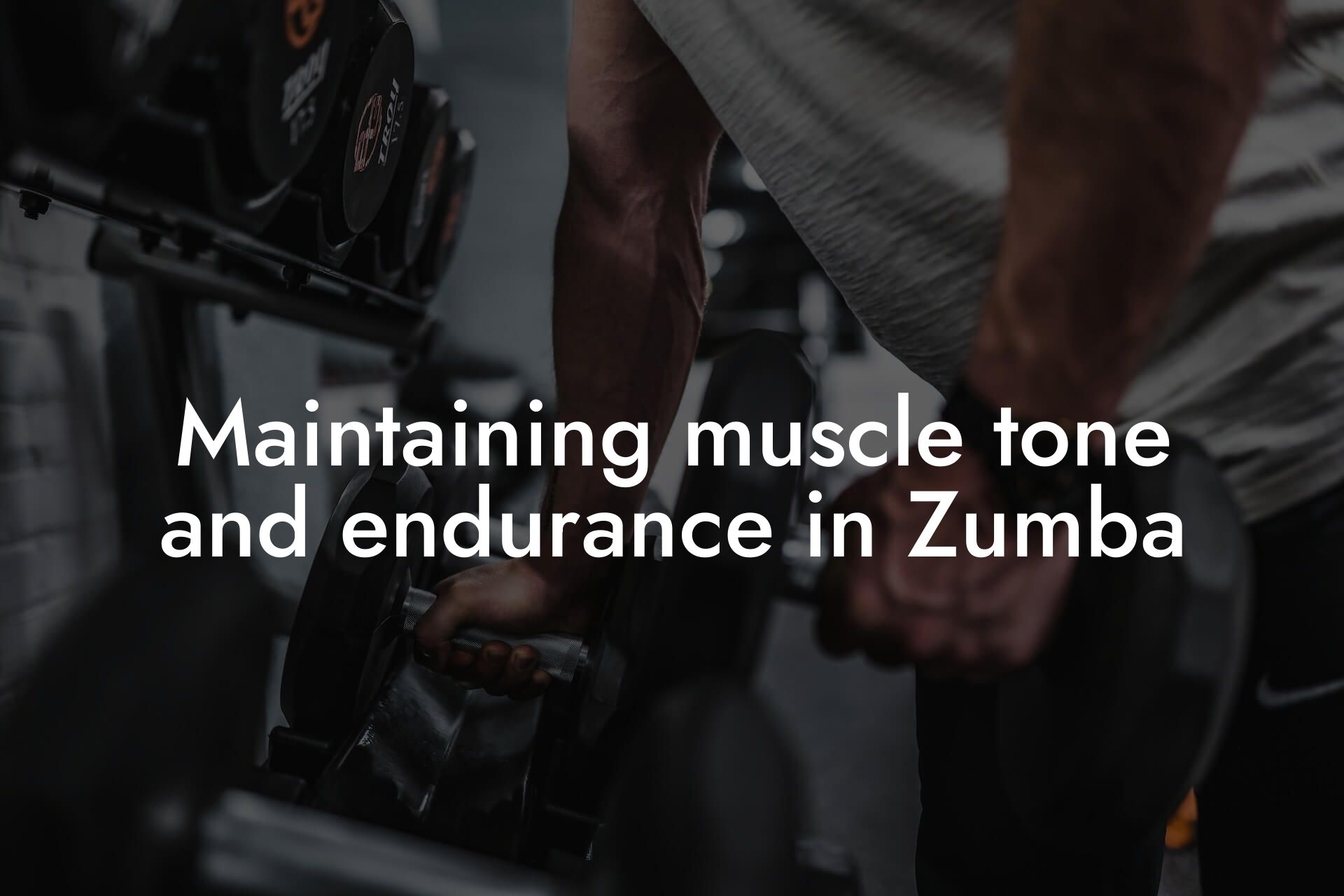As a high-earning professional, you understand the importance of maintaining a healthy physique and optimal body composition. Engaging in regular exercise, such as Zumba classes, is an excellent way to achieve this goal. However, to get the most out of your workout and maintain sustained energy throughout, it's crucial to fuel your body with the right nutrients. In this article, we'll explore the essential nutrition strategies to help you power through your Zumba classes and achieve your fitness goals.
Table of Contents
- Understanding Energy Needs for Zumba
- Carbohydrates: The Primary Energy Source
- Protein: The Muscle Builder and Repairer
- Hydration: The Key to Optimal Performance
- Electrolytes: The Energy Spark Plugs
- Pre-Workout Snacks: Boosting Energy and Performance
- Post-Workout Nutrition: Recovery and Rebuilding
- Individualized Nutrition Planning: The Key to Success
- Frequently Asked Questions
Understanding Energy Needs for Zumba
Zumba is a high-intensity dance fitness program that requires a significant amount of energy. A typical Zumba class can burn between 400-600 calories, depending on the intensity and duration. To meet this energy demand, your body relies on a combination of carbohydrates, protein, and fat for fuel. Understanding your energy needs is critical to optimize your nutrition strategy and ensure you have the energy to power through your workout.
Carbohydrates: The Primary Energy Source
Carbohydrates are the body's primary source of energy for high-intensity activities like Zumba. They are broken down into glucose, which is then used by the muscles for energy production. Focus on consuming complex carbohydrates, such as whole grains, fruits, and vegetables, which provide sustained energy release and essential fiber, vitamins, and minerals. Aim to consume 2-3 grams of complex carbohydrates per kilogram of body weight 1-2 hours before your Zumba class.
Protein: The Muscle Builder and Repairer
Protein is essential for muscle growth, repair, and maintenance. During high-intensity exercise like Zumba, muscle fibers are broken down, and protein is necessary to repair and rebuild them. Aim to consume 15-20 grams of protein 1-2 hours before your Zumba class to help with muscle recovery and growth. Good sources of protein include lean meats, fish, eggs, dairy, and plant-based options like legumes, nuts, and seeds.
Hydration: The Key to Optimal Performance
Adequate hydration is critical for optimal performance during Zumba classes. Water makes up approximately 60% of our body weight and plays a vital role in regulating body temperature, transporting nutrients, and removing waste products. Aim to drink at least 8-10 glasses of water per day, and make sure to drink 1-2 glasses of water 30 minutes before your Zumba class. Additionally, consider incorporating electrolyte-rich beverages, such as coconut water or sports drinks, to help replenish lost electrolytes during exercise.
Electrolytes: The Energy Spark Plugs
Electrolytes, such as sodium, potassium, magnesium, and calcium, play a crucial role in regulating various bodily functions, including energy production. During high-intensity exercise like Zumba, electrolytes are lost through sweat, which can lead to fatigue, cramping, and decreased performance. Incorporate electrolyte-rich foods, such as bananas, avocados, and nuts, into your diet, and consider taking an electrolyte supplement or consuming electrolyte-rich beverages during your workout.
Pre-Workout Snacks: Boosting Energy and Performance
A well-timed pre-workout snack can help boost energy levels and enhance performance during your Zumba class. Aim to consume a snack that combines complex carbohydrates and protein 30-60 minutes before your workout. Examples of effective pre-workout snacks include:
- Banana with almond butter
- Apple slices with peanut butter
- Greek yogurt with berries and honey
- Energy bar with a balance of carbohydrates and protein
Post-Workout Nutrition: Recovery and Rebuilding
After your Zumba class, it's essential to refuel your body with the right nutrients to aid in recovery and rebuilding. Aim to consume a meal or snack that combines carbohydrates and protein within 30-60 minutes after your workout. This helps to replenish energy stores, repair muscle tissue, and support muscle growth. Examples of effective post-workout meals or snacks include:
- Grilled chicken with brown rice and vegetables
- Smoothie bowl with protein powder, banana, and almond milk
- Whole-grain wrap with turkey, avocado, and mixed greens
- Protein shake with carbohydrates and electrolytes
Individualized Nutrition Planning: The Key to Success
Everyone's nutritional needs are unique, and what works for one person may not work for another. As a high-earning professional, it's essential to work with a qualified healthcare professional or registered dietitian to develop a personalized nutrition plan tailored to your specific needs and goals. This may involve undergoing a comprehensive body assessment, such as a DEXA scan, to gain a better understanding of your body composition and nutritional requirements.
By incorporating these nutrition strategies into your daily routine, you'll be able to power through your Zumba classes with sustained energy and achieve your fitness goals. Remember to stay hydrated, fuel your body with the right nutrients, and listen to your body's needs to optimize your performance and achieve optimal body composition.
Frequently Asked Questions
What are the benefits of proper nutrition for sustained energy in Zumba classes?
Proper nutrition plays a crucial role in maintaining sustained energy levels during Zumba classes. A well-balanced diet provides the necessary fuel for your body to perform at its best, ensuring you can power through even the most intense routines. Adequate nutrition also helps reduce fatigue, improves mental focus, and supports overall physical performance.
What are the best foods to eat before a Zumba class?
Opt for complex carbohydrates, lean proteins, and healthy fats 1-2 hours before your Zumba class. Examples of ideal pre-workout foods include whole grain toast with avocado and eggs, Greek yogurt with berries and nuts, or a banana with almond butter. These foods provide sustained energy, support muscle function, and aid in digestion.
How much water should I drink before and during a Zumba class?
Aim to drink at least 16-20 ounces of water 1-2 hours before your Zumba class, and continue to hydrate with 8-10 ounces every 20-30 minutes during the class. Proper hydration is essential for maintaining energy levels, regulating body temperature, and preventing dehydration.
What are the best snacks to eat during a Zumba class?
Choose snacks that are easy to digest, high in carbohydrates, and low in sugar. Examples of ideal snacks include energy bars, dried fruits, or energy chews. Avoid heavy meals or snacks that are high in fat, salt, or sugar, as they can cause digestive discomfort and energy crashes.
Can I eat a meal immediately after a Zumba class?
It's recommended to wait at least 30-60 minutes after your Zumba class before eating a meal. This allows your body to recover, replenish energy stores, and reduce muscle soreness. Opt for a balanced meal that includes carbohydrates, protein, and healthy fats to support muscle recovery and growth.
What are the best post-workout foods for muscle recovery?
Focus on consuming foods high in protein, complex carbohydrates, and healthy fats within 30-60 minutes after your Zumba class. Examples of ideal post-workout foods include a protein smoothie with banana and almond milk, whole grain crackers with turkey and avocado, or a bowl of chicken and vegetable soup. These foods help repair and rebuild muscle tissue, reduce muscle soreness, and support overall recovery.
How can I avoid energy crashes during a Zumba class?
To avoid energy crashes, make sure to eat a balanced meal or snack 1-2 hours before your Zumba class, stay hydrated by drinking plenty of water, and choose snacks that are high in carbohydrates and low in sugar. Additionally, avoid skipping meals, consuming too much caffeine, or eating heavy meals that can cause digestive discomfort.
What are the benefits of incorporating protein into my Zumba nutrition plan?
Protein plays a crucial role in muscle growth, repair, and recovery. Incorporating protein into your Zumba nutrition plan helps build and maintain muscle mass, reduces muscle soreness, and supports overall physical performance. Aim to consume 15-20 grams of protein per meal or snack to support muscle function and recovery.
Can I consume caffeine before a Zumba class?
While caffeine can provide a temporary energy boost, it's recommended to consume it in moderation and avoid it altogether if you're sensitive to its effects. Excessive caffeine consumption can lead to energy crashes, dehydration, and digestive discomfort during your Zumba class.
How can I stay motivated to maintain a healthy nutrition plan for sustained energy in Zumba classes?
Stay motivated by setting realistic goals, tracking your progress, and rewarding yourself for small achievements. Find a workout buddy or join a fitness community to stay accountable and inspired. Additionally, focus on how proper nutrition makes you feel, rather than just looking at it as a means to an end.
What are the consequences of poor nutrition on energy levels during Zumba classes?
Poor nutrition can lead to energy crashes, fatigue, and decreased physical performance during Zumba classes. It can also cause digestive discomfort, dehydration, and muscle soreness. Furthermore, poor nutrition can negatively impact overall health, increasing the risk of chronic diseases and reducing quality of life.
How can I ensure I'm getting enough electrolytes during a Zumba class?
Electrolytes are essential for maintaining proper hydration and supporting physical performance. Ensure you're getting enough electrolytes by consuming electrolyte-rich foods and drinks, such as bananas, coconut water, or sports drinks. You can also consider taking electrolyte supplements or tablets before and during your Zumba class.
What are the benefits of incorporating healthy fats into my Zumba nutrition plan?
Healthy fats provide sustained energy, support hormone function, and aid in the absorption of essential vitamins and minerals. Incorporating healthy fats into your Zumba nutrition plan can help reduce inflammation, improve mental focus, and support overall physical performance.
Can I consume sports drinks during a Zumba class?
Sports drinks can be beneficial for high-intensity, long-duration activities, but they may not be necessary for a typical Zumba class. However, if you're engaging in a high-intensity Zumba class or have a medical condition, sports drinks can help replenish electrolytes and provide hydration.
How can I prevent muscle soreness after a Zumba class?
Prevent muscle soreness by incorporating stretching and foam rolling into your post-workout routine, consuming anti-inflammatory foods and drinks, and getting adequate rest and recovery. Additionally, consider taking supplements such as protein, creatine, or branched-chain amino acids (BCAAs) to support muscle recovery and growth.
What are the benefits of incorporating complex carbohydrates into my Zumba nutrition plan?
Complex carbohydrates provide sustained energy, support muscle function, and aid in digestion. Incorporating complex carbohydrates into your Zumba nutrition plan can help reduce energy crashes, improve mental focus, and support overall physical performance.
How can I stay energized during a long Zumba class?
Stay energized during a long Zumba class by consuming snacks that are high in carbohydrates and low in sugar, staying hydrated by drinking plenty of water, and incorporating electrolyte-rich foods and drinks into your nutrition plan. Additionally, consider taking breaks to stretch and move around to reduce fatigue and improve overall performance.
What are the consequences of dehydration during a Zumba class?
Dehydration can lead to fatigue, dizziness, and decreased physical performance during a Zumba class. It can also cause headaches, muscle cramps, and digestive discomfort. In severe cases, dehydration can lead to heat stroke, heat exhaustion, and other heat-related illnesses.
How can I support my immune system through nutrition during Zumba classes?
Support your immune system by consuming foods rich in antioxidants, vitamins, and minerals, such as fruits, vegetables, nuts, and seeds. Additionally, consider taking supplements such as vitamin C, vitamin D, or probiotics to support immune function and reduce the risk of illness.
What are the benefits of incorporating lean proteins into my Zumba nutrition plan?
Lean proteins provide essential amino acids for muscle growth, repair, and recovery. Incorporating lean proteins into your Zumba nutrition plan can help reduce muscle soreness, improve physical performance, and support overall muscle function.
Can I consume energy gels or chews during a Zumba class?
Energy gels or chews can provide a quick energy boost during a Zumba class, but they should be consumed in moderation and according to the manufacturer's instructions. Avoid consuming energy gels or chews that are high in sugar, as they can cause energy crashes and digestive discomfort.
How can I reduce muscle inflammation after a Zumba class?
Reduce muscle inflammation by consuming anti-inflammatory foods and drinks, such as turmeric, ginger, or omega-3 fatty acids. Additionally, consider taking supplements such as protein, creatine, or BCAAs to support muscle recovery and growth.
What are the benefits of incorporating antioxidants into my Zumba nutrition plan?
Antioxidants help reduce muscle inflammation, improve immune function, and support overall physical performance. Incorporating antioxidants into your Zumba nutrition plan can help reduce oxidative stress, improve mental focus, and support overall health and wellness.
Here are some related articles you might love...
- Balancing cardiovascular fitness and fun in Zumba
- How DEXA scans can benefit Zumba enthusiasts
- Maintaining muscle tone and endurance in Zumba
- The role of Zumba in weight loss and overall health
- Recovery techniques for Zumba dancers after intense sessions
- Strength training tips to complement your Zumba routine
- Reducing body fat for improved stamina and flexibility in Zumba
- Bone density and its role in Zumba performance
- The impact of body composition on Zumba performance
Zak Faulkner
Zak Faulkner is a leading authority in the realm of physical health and body composition analysis, with over 15 years of experience helping professionals optimise their fitness and well-being. As one the experts behind Tano Performance Group, Zak has dedicated his career to providing in-depth, science-backed insights that empower clients to elevate their physical performance and overall health.
With extensive knowledge of DEXA technology, Zak specializes in delivering comprehensive body assessments that offer precise data on body fat, muscle mass, bone density, and overall physique. His expertise enables individuals to make informed decisions and achieve their fitness goals with accuracy and confidence. Zak’s approach is rooted in a deep understanding of human physiology, combined with a passion for helping clients unlock their full potential through personalised strategies.
Over the years, Zak has earned a reputation for his commitment to excellence, precision, and client-focused service. His guidance is trusted by top professionals who demand the best when it comes to their health. Whether advising on fitness programs, nutritional strategies, or long-term wellness plans, Zak Faulkner’s insights are a valuable resource for anyone serious about taking their health and fitness to the next level.
At Tano Performance Group, Zak continues to lead our Content Team revolutionising how professionals approach their physical health, offering unparalleled expertise that drives real results.




